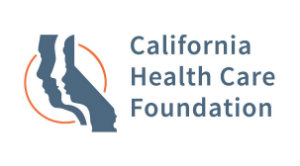 We are excited to announce a new national poll released today that shows physicians clearly understand the importance of talking with older adults about end-of-life care, and that they overwhelmingly support a new Medicare benefit that reimburses them for holding advance care planning discussions with patients.
We are excited to announce a new national poll released today that shows physicians clearly understand the importance of talking with older adults about end-of-life care, and that they overwhelmingly support a new Medicare benefit that reimburses them for holding advance care planning discussions with patients.
Very importantly, the poll also provides valuable insights into some of the barriers that keep physicians from having advance care planning conversations. The survey of primary care and specialist physicians in 50 states was supported by The John A. Hartford Foundation and our wonderful partners at the California Health Care Foundation and Cambia Health Foundation. We will delve even further into the barriers we uncovered, as well as strategies for overcoming them, with a series of interprofessional focus groups of health care providers later this year.
 The survey released today—Conversation Stopper: What’s Preventing Physicians from Talking with Patients about End-of-Life and Advance Care Planning?—opens a window to the personal views, feelings, and even fears of physicians concerning some of the most sensitive and important interactions they have with patients.
The survey released today—Conversation Stopper: What’s Preventing Physicians from Talking with Patients about End-of-Life and Advance Care Planning?—opens a window to the personal views, feelings, and even fears of physicians concerning some of the most sensitive and important interactions they have with patients.
For example, nearly half (46 percent) report that they frequently or sometimes feel unsure of what to say. And less than one-third (29 percent) report having had any formal training specifically on talking with patients and their families about end-of-life care.
Advance care planning conversations between patients, families, and health care providers are critically important for everyone, not just older adults or those at the end of life. They help people learn about their care options, figure out the type of care they want, and share those wishes with family, friends, and providers—ideally in writing and as part of a patient’s electronic health record. Our survey shows that 99 percent of physicians feel it is important for health care providers to have these conversations with patients, and 95 percent say they support the new Medicare benefit that took effect on Jan. 1, 2016.
 Perhaps because the Medicare benefit has only been in effect for a short time, only 14 percent of physicians in the survey say they have billed Medicare for these advance care planning conversations. However, in an encouraging sign, 75 percent say that the new benefit would make them more likely to talk with older patients about advance care planning.
Perhaps because the Medicare benefit has only been in effect for a short time, only 14 percent of physicians in the survey say they have billed Medicare for these advance care planning conversations. However, in an encouraging sign, 75 percent say that the new benefit would make them more likely to talk with older patients about advance care planning.
This is great news, especially given the public’s similar strong support for the benefit, which represents an important first step toward spurring those conversations to happen more frequently.
But it is only a first step.
The survey found that too few health systems are set up to ensure these conversations happen regularly:
- Only three in 10 doctors surveyed (29 percent) report that their practice or health care system has a formal system for assessing patients’ end-of-life wishes and goals of care.
- One in four (24 percent) says there is no place in their electronic health record (EHR) indicating if a patient has an advance care plan, and for those who do, only a little more than half (54 percent) say they can actually access the plan’s contents.
One of the striking findings from the survey is the difference that training makes in the way physicians feel about the advance care conversations they have with patients. Physicians who report having specific training in end-of-life discussions are more likely than those who have not to find those conversations rewarding (46 percent vs. 30 percent). These same trained physicians also more frequently say they rarely or not too often feel unsure about what to say in these conversations (60 percent vs. 52 percent).
A full report on the survey and its findings can be found at: http://www.jhartfound.org/advance-care-planning-poll
Looking to solutions
Even when advance care planning conversations happen, we know that too many people with serious illness or at the end of life still receive care that is completely at odds with their personal wishes. As a society, we have an obligation to do everything in our power to ensure that those wishes are not only heard, but respected and incorporated into care delivery.
That is why in March, our Board of Trustees approved a $3.5 million grant to bring together an exciting collaborative of practitioners, a veritable dream team of innovators, who will work cooperatively to expand the availability and improve the quality of advance care planning and end-of-life care.
This partnership will be led by Dr. Tony Back, co-director of the University of Washington’s Cambia Palliative Care Center of Excellence and executive director of Vital Talk. Others on the team include:
- Ariadne Labs/Serious Illness Care Program, led by Dr. Susan Block and Dr. Atul Gawande;
- The Center to Advance Palliative Care, led by Dr. Diane Meier;
- The Coalition to Transform Advanced Care (C-TAC), led by Tom Koutsoumpas;
- Respecting Choices, led by Dr. Bud Hammes;
- The Conversation Project, led by author Ellen Goodman; and
- The National POLST Paradigm, led by attorney Amy Vandenbroucke.
In addition to generating a collaborative strategy, this initiative will help scale up these six innovative models and thereby improve care for at least 300,000 people over the next three years.
This grant is The John A. Hartford Foundation’s latest major investment in this area, and we are very excited, especially since a coalition of 17 funders, including the California Health Care Foundation and Cambia Health Foundation, have come together to explore additional opportunities for investments in this area.
We are also excited about the second phase of the polling project, which will conduct focus groups with physician assistants, nurse practitioners, registered nurses and other members of the health care team who share responsibility for advance care planning, including representatives from diverse ethnic and racial populations.
The findings from our poll give us hope and evidence to show that Medicare’s recent policy change to cover advance care planning conversations holds promise in encouraging more end-of-life planning discussions. The poll and our forthcoming focus groups will also point to areas for improvement to make sure these conversations are of the highest quality and translate into better care for older adults and anyone at the end of their life.
